
Dry skin affects both males and females equally, but older people tend to be more vulnerable to dry skin than younger individuals. This is a result of the reduction of natural oil production in older skin. Dry skin is quite common in areas like the lower legs, hands and arms. The condition can be temporary, but for many people skin problems like this can lead to long-lasting difficulties. Dry skin can also be worsened by particular weather conditions.
About dry skin
Those who suffer from dry skin might experience itching, skin tightness and general discomfort with regard to the skin. Frequent hand-washing and sanitizing can lead to increased difficulties with dry skin. Dry skin might also occur as a result of a side effect of medication usage or some physiological disorder.
Sebum is a natural oil product that helps prevent dehydration in the skin. When these oils are stripped away, the skin begins to lose moisture. As this happens, the skin might become vulnerable to rashes and breakdown. In some cases, the condition might not lead to outward visibility of dry skin. In some people, dry skin will leave a dry, powder-like substance on the skin.
Who's at risk
Dry skin is common in those who suffer from conditions such as eczema, atopic dermatitis, asthma or other allergies. People who suffer from hypo- and hyperthyroidism might also be prone to dry skin. In those who do suffer from dry skin, there may be a possibility of secondary infection as a result of scratching or skin breakdown. Cracks and breaks in the skin can be quite common with this condition.
Prevention
Managing indoor climactic conditions might help to combat dry skin. It might be a good idea to add some humidity to the indoor environment, particularly during the dry winter months. One might also try to reduce frequency of bathing, avoid the usage of strong soaps and reduce your exposure to harmful detergents. Try to also limit your exposure to solvents and woolen clothing.
Some products can also help with the management of dry skin. One should try to use mild cleansers and rich moisturizers. It might be advisable for some people to use non-scented soap free products. Moisturizers and this type of product should be applied after showering.
Medications
Medications like topical corticosteroids can help to manage some of the symptoms of dry skin, such as itching. Some topical or oral antibiotics can be used to treat infected dry skin.



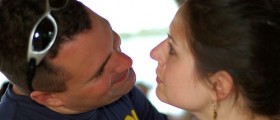








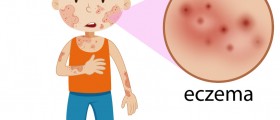
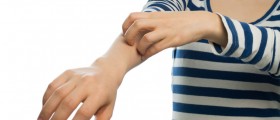
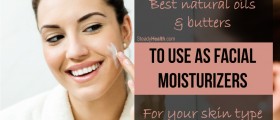
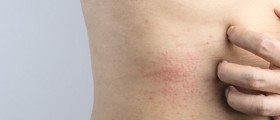
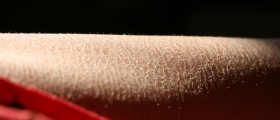
Your thoughts on this
Loading...